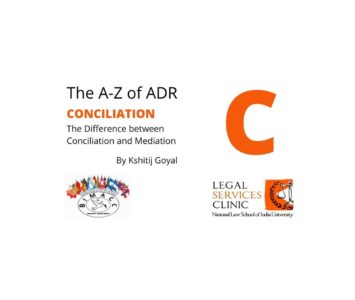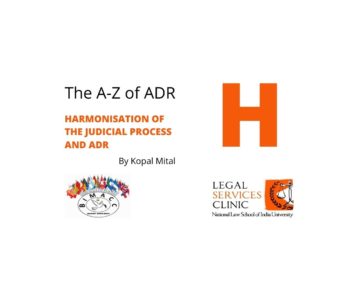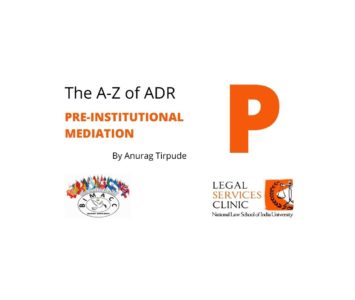A-Z of ADR: Alternative Dispute Resolution (ADR) Clauses by Lahar Jain
The inclusion of Alternative Dispute Resolution (ADR) clauses in most agreements in a globalised market is hardly discordant due to the increasing popularity of such mechanisms. However, most arbitration disputes deal with contentions involving such clauses and this is the reason that the phraseology, purpose and position of these clauses are of […]
Read More









